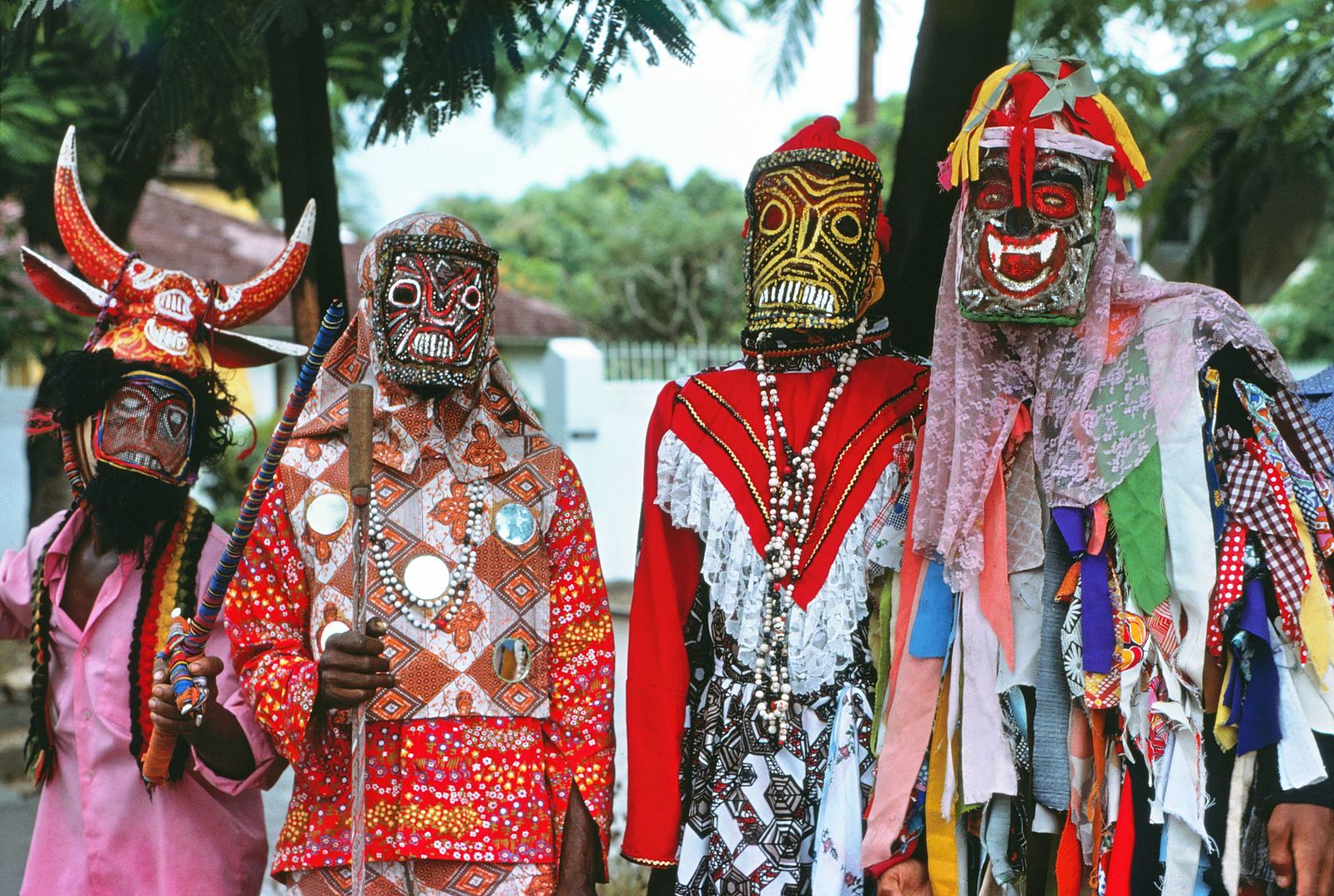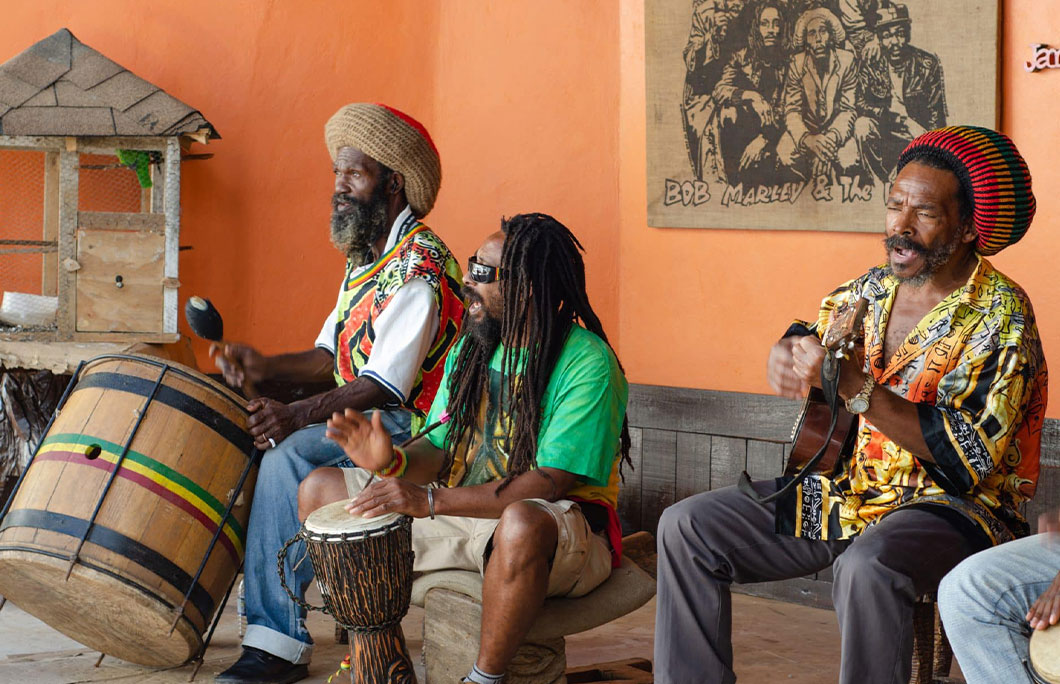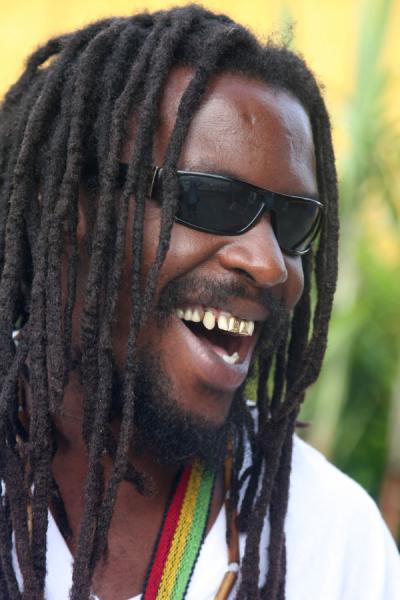Unlock Jamaica: Your Guide To Mastering Jamaican Slang
Ever found yourself captivated by the rhythmic flow of Jamaican conversations, yet utterly lost in translation? Jamaican slang, often affectionately called Patois or Patwa, isn't just a collection of words; it's a vibrant, expressive form of communication that carries the very soul of the island. It's a key to unlocking the warmth, humor, and unique identity of Jamaica, a place instantly reminding you of blue seas, the green, black, yellow flag, Bob Marley, and of course, its distinct accent.
This comprehensive guide will traverse through the rich tapestry of Jamaican Patois, delving into its meanings, exploring its origins, and offering insights into how these colorful words and phrases are woven into the fabric of everyday Jamaican life. Whether you're planning a trip, have Jamaican friends, or simply wish to deepen your understanding of this fascinating culture, mastering Jamaican slang will undoubtedly enhance your experience.
Table of Contents
- The Roots of Rhythm: Understanding Jamaican Patois
- Greetings and Farewells: Starting and Ending Conversations
- Everyday Expressions: From Agreeing to Disagreeing
- Street Slang and Cultural Insights
- Proverbs and Wise Sayings: The Heart of Jamaican Wisdom
- Texting and Modern Usage: Jamaican Slang in the Digital Age
- Speaking with Respect: Navigating Jamaican Slang Mindfully
- Beyond the Words: The Cultural Significance of Jamaican Slang
- Mastering Patois: Tips for Learning and Practice
The Roots of Rhythm: Understanding Jamaican Patois
Jamaican Patois, often affectionately called "Patwah" and officially recognized as a form of Jamaican Creole, is a language deeply embedded in the island's history and culture. It's not merely a dialect but a vibrant, expressive form of communication with roots in English, West African languages, and even a bit of Spanish and French. This unique linguistic blend is a direct reflection of Jamaica's complex colonial history, where various cultures converged and influenced the way people spoke. While Jamaicans are native English speakers, their heritage and history have molded Patois into a unique form of expression, making it both familiar and puzzling for visitors.
The essence of Jamaican slang goes far beyond simple vocabulary. It's woven into the very fabric of Jamaican culture and identity, carrying within it the history, values, and lived experiences of the Jamaican people. The vibrant rhythm of the island lives in the way Jamaicans speak—full of charm, color, and character. This means that understanding the context is absolutely key when interpreting Patois. A single word or phrase can carry multiple layers of meaning depending on the situation, the speaker's tone, and the relationship between the individuals conversing. For instance, a phrase might be a greeting, a question, or an affirmation, all depending on the intonation. This linguistic richness is why Jamaican Patois isn't just a collection of slang words; it's the language of the people, a testament to their resilience and creativity.
Linguists and cultural experts often highlight that Patois evolved as a means of communication among enslaved Africans who were forced to learn English, but infused it with their native grammatical structures and vocabulary. This created a new language that allowed them to communicate amongst themselves, often in ways that their enslavers could not fully comprehend. Over centuries, this creole language solidified, becoming the everyday tongue for the majority of Jamaicans. It's a living language that continues to evolve, reflecting contemporary influences while holding firm to its historical roots. This deep connection to history makes learning Jamaican slang not just a linguistic exercise, but a journey into the heart of Jamaican heritage.
Greetings and Farewells: Starting and Ending Conversations
One of the most immediate ways to connect with Jamaicans is by using their common greetings and farewells. These are essential phrases for opening conversations and checking in with friends, instantly setting a warm and friendly tone. Jamaican texting slang is also known for its straightforward, friendly greetings that instantly set the tone for a casual chat, often abbreviating these very phrases.
- Martin Sheen
- Kim K With Ray J Sex Tape
- Evgeniya Lvovna
- Alexa Bliss Sexy
- Project Escape Room Roblox School
- Wah Gwaan? (Pronounced: Wah Gwaan)
- Meaning: What's going on? / What's up?
- Usage: This is the quintessential Jamaican greeting, widely used and understood. It's casual and friendly.
- Example: "Wah gwaan, mi bredda?" (What's up, my brother?)
- Ya Mon! (Pronounced: Yah Mahn)
- Meaning: Yes, man! / Alright! / Indeed!
- Usage: An incredibly versatile affirmative. It can be used in response to greetings, to express agreement, or simply as an interjection to acknowledge what someone is saying.
- Example: "Dat sound good, ya mon!" (That sounds good, yes!)
- How yuh doin'? (Pronounced: How yoo do-in?)
- Meaning: How are you doing?
- Usage: A direct and common inquiry, similar to standard English but with a Patois pronunciation.
- Good mawnin'/evenin'/night (Pronounced: Good maw-nin/ee-ven-in/nyte)
- Meaning: Good morning/evening/night
- Usage: Standard greetings, often with a softened 'g' sound and a distinct Patois rhythm.
- Lata (Pronounced: Lah-tah)
- Meaning: Later / Goodbye
- Usage: A casual and widely used farewell. It implies "see you later" even if you don't have immediate plans to meet.
- Example: "Mi haffi go now, lata!" (I have to go now, goodbye!)
- Walk good (Pronounced: Walk good)
- Meaning: Go well / Take care
- Usage: A warm and common way to say goodbye, wishing someone a safe journey or well-being.
These phrases are derived from Jamaican Patois, a unique blend of English and African languages, and mastering them is your first step into understanding the island's communicative charm. Using these simple greetings correctly can open doors to more authentic interactions and demonstrate your respect for the local culture. They are the backbone of daily conversations, making them some of the most common and useful Jamaican slang words and phrases for daily conversations.
Everyday Expressions: From Agreeing to Disagreeing
Beyond greetings, learning common Jamaican slang words and phrases used in everyday conversations is crucial for truly immersing yourself in the culture. These expressions cover a wide range of situations, from showing enthusiasm to expressing disagreement, and provide a deeper understanding of how Jamaicans communicate their thoughts and feelings.
- Fahwud (Pronounced: Fah-wud)
- Meaning: Forward / Let's go / Alright / I agree.
- Usage: Extremely versatile. Can mean moving physically forward, an enthusiastic agreement, or simply an affirmation to proceed.
- Example: "Di party start, fahwud!" (The party's starting, let's go!) or "Dat sound good, fahwud!" (That sounds good, I agree!).
- Irie (Pronounced: Eye-ree)
- Meaning: Everything is alright / Feeling good / Peaceful.
- Usage: A popular term, especially within Rastafarian culture, signifying a state of peace, positivity, and general well-being.
- Example: "How yuh feelin' today?" "Mi feelin' irie, mon." (How are you feeling today? I'm feeling good, man.)
- Bless up (Pronounced: Bless up)
- Meaning: Bless you / Take care / Good wishes.
- Usage: A common farewell or expression of good wishes, often used among friends and acquaintances.
- Example: "Walk good, bless up!" (Go well, take care!)
- Mi deh yah (Pronounced: Mee deh yah)
- Meaning: I am here / I'm doing well / I'm present.
- Usage: A very common response to "Wah gwaan?" or "How yuh doin'?", indicating presence and often well-being.
- Example: "Wah gwaan?" "Mi deh yah, bredda." (What's up? I'm here, brother.)
- No problem mon (Pronounced: No prah-blem mahn)
- Meaning: No problem, man.
- Usage: A relaxed and widely used phrase to acknowledge a request, a thank you, or to assure someone that something is not an issue.
- Small up yuhself (Pronounced: Smaal up yoo-self)
- Meaning: Make space / Move over / Squeeze in.
- Usage: Used in crowded situations, politely asking someone to make a little room.
- Example: "Small up yuhself, mek mi siddung." (Move over, let me sit down.)
- Cho! (Pronounced: Choh!)
- Meaning: An exclamation of exasperation, disbelief, or annoyance.
- Usage: Similar to "Oh, come on!", "Nonsense!", or "Give me a break!". It's a versatile expression of mild frustration.
- Example: "Cho! Yuh can't serious!" (Oh, come on! You can't be serious!)
- Dat nah go dung (Pronounced: Dat nah go dung)
- Meaning: That's not going to happen / I don't agree / That won't be accepted.
- Usage: A firm way to express disagreement or rejection of an idea or situation.
- Example: "Dem plan dat? Dat nah go dung!" (They planned that? That's not going to happen!)
- Mi nah know (Pronounced: Mee nah no)
- Meaning: I don't know.
- Usage: A simple and direct expression of uncertainty or lack of knowledge.
These phrases offer a deeper dive into the communicative style of Jamaicans, allowing you to move from basic greetings to more nuanced daily interactions. Understanding their meaning and usage will significantly improve your Jamaican language skills and help you navigate conversations more smoothly.
Street Slang and Cultural Insights
Jamaican street slang is often as colorful and vibrant as the island itself. These terms are deeply rooted in daily life and offer a glimpse into the local perspective, reflecting the island's rich culture and history. They are the words you'll hear in marketplaces, on public transport, and among friends, giving you an authentic taste of Jamaican communication.
- Wicked (Pronounced: Wik-ed)
- Meaning: Excellent / Great / Impressive.
- Usage: Often used positively, especially for music, a good performance, or something truly impressive. It's the opposite of its English meaning.
- Example: "Dat song wicked, mon!" (That song is excellent, man!)
- Boasty (Pronounced: Boas-tee)
- Meaning: Boastful / Arrogant / Show-off.
- Usage: Describes someone who brags too much or acts in a conceited manner.
- Example: "Him too boasty 'bout him new car." (He's too boastful about his new car.)
- Link up (Pronounced: Link up)
- Meaning: Meet up / Connect / Get together.
- Usage: To arrange to meet someone or to simply connect with them.
- Example: "We fi link up later fi di football game." (We should meet up later for the football game.)
- Yard (Pronounced: Yaad)
- Meaning: Home / Jamaica (the country).
- Usage: Can refer to one's house or, more broadly, to Jamaica itself, especially when speaking from abroad or referring to the homeland.
- Example: "Mi soon go back a yard." (I'll soon go back home/to Jamaica.)
- Forward (Pronounced: Fah-wud, or Foh-wud)
- Meaning: To go somewhere / To proceed.
- Usage: Similar to "Fahwud" but more about physical movement or progression. Often used as an instruction or a statement of intent.
- Example: "We need fi forward to di market now." (We need to go to the market now.)
- Run a boat (Pronounced: Run ah boat)
- Meaning: To share expenses for food/drinks / To pool resources for a communal meal.
- Usage: A communal way of eating or drinking where everyone contributes.
- Example: "Let's run a boat fi di dinner tonight." (Let's pool our money for dinner tonight.)
These terms are an integral part of everyday Jamaican life, reflecting the communal spirit and the practicalities of island living. They illustrate how the language adapts to describe specific social interactions and cultural practices, making Jamaican slang truly unique.
Food and Money: Essential Vocabulary
Just like in any culture, food and money are central themes, and Jamaican slang has its own colorful terms for these necessities. Knowing these terms can be incredibly useful, whether you're ordering a meal or discussing prices.
- Ital (Pronounced: Eye-tal)
- Meaning: Natural / Organic / Vegan / Wholesome.
- Usage: Derived from "vital," this term is strongly associated with Rastafarian dietary principles, emphasizing natural, unprocessed foods. It often implies a vegetarian or vegan meal.
- Example: "Mi prefer ital food fi keep mi strong." (I prefer natural food to keep me strong.)
- Ackee and Saltfish (Pronounced: Ak-ee an
- Is Cal Raleigh Married Unveiling The Mariners Stars Life
- Mothers Warmth Chapter 3 Jackerman
- Horse Mating
- Rik Estrada Larry Wilcox
- 4 Girls One Fingerprint Unraveling The Mystery Behind The Viral Trend

John Canoe (Jonkonnu/Junkanoo): The Whole Story | About Jamaica

7 Unique Traditions In Jamaica | Enjoy Travel

Cool Jamaican guy posing for a picture | Jamaican people | Jamaica